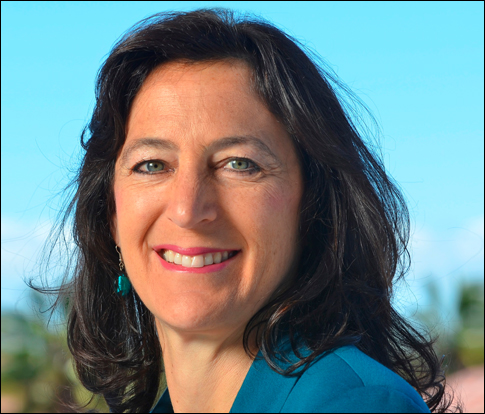ACM named Andrea Goldsmith of Stanford University the 2018-2019 Athena Lecturer for contributions to the theory and practice of adaptive wireless communications, and for the successful transfer of research to commercial technology. Goldsmith introduced innovative approaches to the design, analysis and fundamental performance limits of wireless systems and networks. Her efforts helped develop technologies used in long-term evolution (LTE) cellular devices as well as the Wi-Fi standards that are used in wireless local area networks. Goldsmith participated in the launch of companies to commercialize her work, which has led to the adoption of her ideas throughout the communications industry.
Initiated in 2006 by the ACM Council on Women in Computing (ACM-W), the Athena Lecturer Award celebrates women researchers who have made fundamental contributions to computer science. The award carries a cash prize of $25,000, with financial support provided by Google.
“The anytime, anywhere computing era in which we now live owes a debt to innovators like Andrea Goldsmith who have helped lay the groundwork for the wireless infrastructure that makes mobile computing possible,” said ACM President Vicki L. Hanson. “Her work has improved the transmission, reception and overall quality of wireless communications. Importantly, Goldsmith’s career has exemplified the spirit of the ACM Athena Lecturer Award in the numerous ways she has mentored young women throughout her career. She has helped prepare promising young women PhD students and postdocs for faculty positions, and she has worked to develop actionable strategies to improve the climate, recruitment and retention of women in the high tech industry.”
Adaptive MIMO
Beginning in the early 1990s, Goldsmith developed several fundamental capacity results for wireless systems. Understanding the Shannon capacity limits of these systems can lead to benefits including increased data rates and extended range while lessening the impact of ongoing challenges in wireless communications including co-channel interference, poor reception, and outages. Goldsmith was the first to propose and develop the underlying theory for time-varying adaptive modulation, as well as new multiple input/multiple output (MIMO) techniques that have been employed throughout the field to improve network capacity and performance.
She proposed techniques, including design of modulation and coding scheme (MCS) tables and quadrature amplitude modulation (MQAM and code) indexed by signal noise radio (SNR) bands, that are used in a variety of wireless systems including EDGE, Wi-Fi and 3GPP/LTE.
Quantenna
In 2005, Goldsmith founded Quantenna Communications to build a product and company around her research in adaptive MIMO wireless. In 2008, as CTO, she led the development of the world’s first 4x4 adaptive MIMO 802.11n Wi-Fi chipset. Compared with other Wi-Fi products on the market, the Quantenna chipset provided better data rates, coverage and reliability and was especially effective for wireless distribution of multiple HD video streams. Today Quantenna products are used by major carriers including AT&T, DirectTV, Comcast, France Telecom, Swisscom and Telefonica.
Biographical Background
Andrea Goldsmith is the Stephen Harris Professor in the School of Engineering at Stanford University. She co-founded and served as Chief Technical Officer of Plume Wi-Fi and of Quantenna, and she currently serves on the corporate or technical advisory boards of Crown Castle Inc., Interdigital Corp., Sequans, Quantenna and Cohere.
Goldsmith has published 160 journal papers, 320 peer-reviewed conference papers, and three textbooks, one of which has been translated into Chinese, Japanese and Russian. She also holds 29 patents, with three pending. Goldsmith is a member of the National Academy of Engineering and the American Academy of Arts and Sciences, and is a Fellow of the IEEE and of Stanford. She has received several awards for her work, including the IEEE ComSoc Edwin H. Armstrong Achievement Award, as well as the National Academy of Engineering Gilbreth Lecture Award. Goldsmith received her PhD, MS and BS degrees in Electrical Engineering from the University of California, Berkeley.
The Athena Lecturer is invited to present a lecture at an ACM event. Goldsmith’s Athena Lecture will be delivered at an ACM event later this year. The award is named after Athena, the Greek goddess of wisdom. With her knowledge and sense of purpose, Athena epitomizes the strength, determination, and intelligence of the “Athena Lecturers.”
Goldsmith will formally receive the Athena Lecturer Award at ACM’s annual awards banquet on June 23, 2018 in San Francisco.
